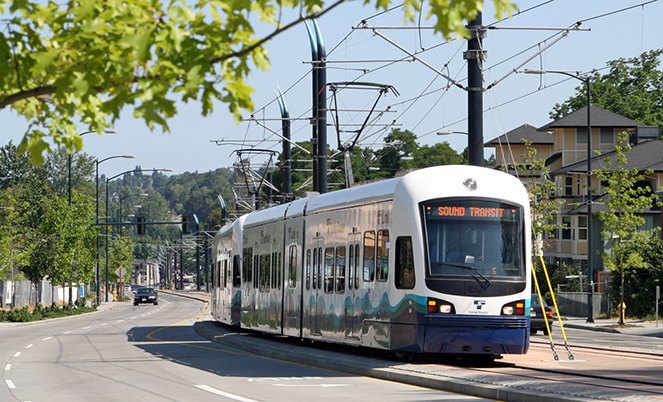Hi there! My name is Nathan Kang, and I am a rising senior at the Overlake School in Redmond. I have a passion for cities, urban planning, and transportation. A good friend of mine who attends my school has a very interesting story with regard to public transportation. He takes public transit every day to school and back home, and his experience reveals the many shortcomings of the public transit system. Although Seattle is often hailed as having one of the best public transportation systems in the country, this interview highlights how much more needs to be done.

Q: Hello there! Could you just introduce yourself and give a quick rundown of who you are?
A: Hi, my name is Muad Abdi, I’m a rising senior at Overlake School in Redmond, and I currently reside in Seattle Washington.
Q: What does your typical commute to school look like?
A: My typical commute to school takes around 2 hours, from the time it takes to get on the first public bus I take in the morning, go the train that I take, and then to the school bus that takes me directly to school; it all takes quite some time. For this to all work I will normally get up at around 5:30am to have time to get ready and make each bus/train. School ends at 2:45pm so I would normally get home at around 5ish but since I play three sports, I’m never leaving campus until 6:30pm.
Q: How does your commute change during basketball season?
A: My commute gets super long during the basketball season as I leave school at around 6:45pm and get to my house at around 9:30pm. When there is a 7:15pm basketball game, on the other hand, I’ll get home at around 11:30pm.
Q: How has your commute affected you? Has taking public transportation affected you in any way?
A: I’ve become very reliant on the timing of the buses, so it’s definitely an issue when there are detours or days that the bus doesn’t run which definitely affects my ability to get to the places I need to go.
Q: Is there anything you enjoy from taking public transit?
Seeing all the (sometimes) friendly faces, and it also is a great time to reset and prepare for the day.
Q: What happens if a bus or train is late or cancelled?
A: This normally screws all my plans up since I rely on the bus to take me to and from places, so in those cases I would either stay home or if I’m already out I would have to pay the ridiculous Uber costs to get home.
Q: What would you say is the biggest challenge you face in your commute?
A: The planning has been difficult as delays and cancellations happen so frequently, so every time I plan on going to school or practice, I have to account for the chance that I may be late or won’t be able to make it.
Q: What would you tell King County or The City of Seattle with regard to improving the public transit system?
A: I would personally say increasing the number of buses would make my life, and so many others, much better. The frequency of certain buses is also very annoying, and it is not unusual to have to wait 40-50 minutes for a bus.
Q: Have you ever felt judged taking the public transit system? Do you ever feel like you are different?
A: I wouldn’t say I feel different. However, I would say that a huge issue with public transport is safety, as I’ve noticed a huge increase in the number of people who are homeless living in light rail areas and bringing in lots of illegal items which can make a lot of people uncomfortable. So, I would say that feeling different is never a problem, but safety is a more prevalent issue.
In summary, studies have shown that one of the biggest barriers to equality of opportunity is the lack of transportation. As Muad’s story highlights, a late bus or train can ruin a day’s plans. And when this comes to being late for a job interview or missing a class, the effects are damaging. Let this interview highlight the steps that need to be taken to achieve a more equitable transportation landscape, where no one should be denied the chance to succeed.

